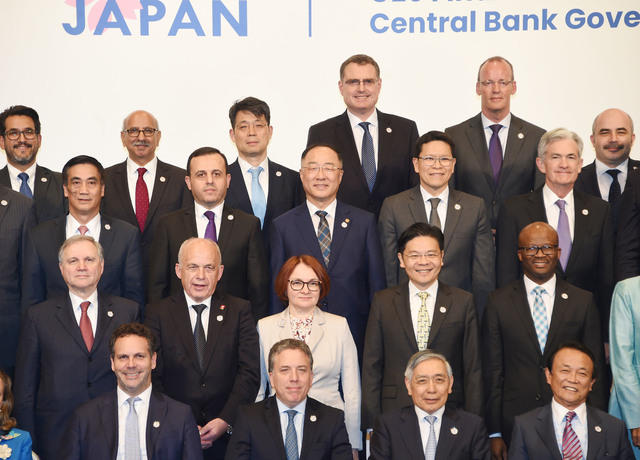Posted on : Jun.11,2019 18:12 KST
 |
|
G20 finance ministers and central bank governors meet in Fukuoka on June 9. (provided by the Ministry of Economy and Finance)
|
Top economic officials in the G20 have identified the US-China trade dispute as the greatest threat for the global economy and have called for international cooperation. The fact that world powers are joining together to pledge cooperation gives some cause for hope. We hope that the G20 summit in Osaka on June 28–29 will ease tensions between China and the US and strengthen the international cooperative regime.
“Growth remains low and risks remain tilted to the downside. Most importantly, trade and geopolitical tensions have intensified,” said a joint communiqué that was adopted after a meeting of G20 finance ministers and central bank governors in Fukuoka on June 8–9.
Though the communiqué did not refer directly to retaliatory tariffs between China and the US, the phrase “trade and geopolitical tensions” indirectly identified the two countries’ dispute as the greatest challenge facing the global economy. This shows that all major powers are greatly concerned about the dispute.
In their joint communiqué, the participating countries said that they “will continue to take joint action to strengthen international cooperation and frameworks.” This means that a consensus has formed to respond jointly to economic stagnation through international policy coordination.
It’s encouraging that the participating countries adopted the joint communiqué, which could have been blocked, to pledge international cooperation. But it’s too soon to expect that this meeting will lead to the resolution of conflict between China and the US. Language acknowledging the urgent need to resolve trade tensions that appeared in an earlier draft of the communiqué was omitted because of pushback from the US, as was language expressing opposition to protectionism, an obvious argument to be made in the G20 meeting. That suggests the limitation of international cooperation.
It’s obvious that the South Korean economy will remain in an uncertain situation for some time to come. The China-US conflict has taken a toll on production, consumption, and investment, and now exports, which had been the last thing propping up the South Korean economy, are in decline, too. Such difficulties are reflected in the repeated downgrades of the projected economic growth rate.
Now is the time for South Korean policymakers to keep their wits about them as they maintain stability in the overall economy. The greatest priority should be on taking precautions for disadvantaged groups that are the first to be pushed to the margins during a crisis.
“The bigger the economic crisis, the more important is to maintain momentum of inclusive growth for vulnerable groups,” said Deputy Prime Minister and Finance Minister Hong Nam-ki, who attended the meeting. Hopefully, Hong’s remarks will lead to actual policy. The political parties need to come together to let the government execute its stimulus program.
Please direct comments or questions to [english@hani.co.kr]






